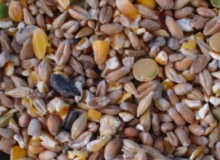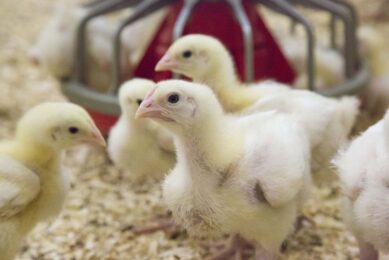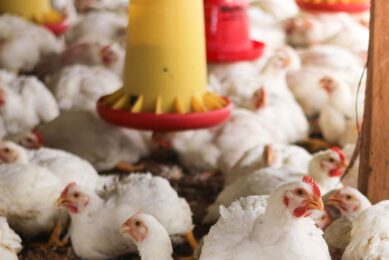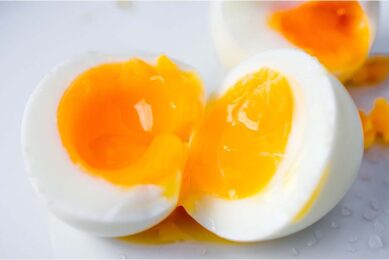Wild birds opt for the conventional feed over organic

The notion that birds and animals prefer organic feed has been called into question by new research from Newcastle University.
A 3-year study by a team from the School of Biology has found that wild birds are not swayed by the organic label, but instead prefer the more protein-rich, conventional food that will help them to survive the winter.
Published in the Journal of the Science of Food and Agriculture, lead researcher Dr Ailsa McKenzie said the findings were likely to be of “considerable interest to the general public in the debate over the relative merits of organic feed for birds and animals.”
“Our results suggest that the current dogma that organic feed is preferred to conventional feed may not always be true,” explains Dr McKenzie. “Protein is an essential nutrient in the diet of all birds and mammals and getting enough of it – especially in winter – can be hard. We showed that when given free choice, wild birds opt for the conventional feed over the organic, and the most likely explanation is its higher protein content.”
Dr McKenzie continued in saying that the study only looks at one aspect of the organic food debate – it does not take into account health implications, or the often negative environmental impact of using chemical fertilisers and pesticides in conventional farming; for example, other work has shown that pesticides can strongly reduce availability of seeds for birds.
Global demand for organic produce is increasing by £4 bln annually – the organic market now accounts for between 2-3% of all food purchased in Europe and the US.
The study
To carry out the study the Newcastle team set up feeding stations in more than 30 gardens across the North of England. Organic and non-organic wheat seeds (both of the same variety) were placed in adjacent bird feeders and then the rate at which the birds ate the different seeds was monitored over a 6-week period.
Half way through the experiment the feeders were swapped around. The experiment was repeated in a second winter with different wheat samples.
The birds showed a strong preference for the conventional seed, eating significantly more of this than the organic. When the feeder positions were switched, the birds ‘learnt’ the new position of the conventional seed and continued to select it in preference to the organic
The feed
Analysis of the wheat found the conventionally-grown seeds to have an average 10% higher protein content than the organic seeds. Other differences between the samples (e.g. in mycotoxin levels, grain size, energy content or pesticide residues) could not explain the preferences shown by the birds.
The garden bird work was confirmed by laboratory studies on canaries, also showing a significant preference for conventionally-grown over organically-grown seeds.
“Conventionally-grown crops tend to contain significantly higher levels of protein than those grown organically due to the application of inorganic nitrogen fertilisers in conventional farming systems,” said Dr McKenzie. “This makes our findings potentially applicable across many feed types and suggests the issues surrounding organic feed for garden birds and other animals are not as cut and dried as some might think.”
* Source information: Birds select conventional over organic wheat when given free choice. A McKenzie and M Whittingham. Journal of the Science of Food and Agriculture.
* The research was funded by the Natural Environment Research Council (NERC), the British Trust for Ornithology and the Biotechnology and Biological Sciences Research Council (BBSRC).
Join 31,000+ subscribers
Subscribe to our newsletter to stay updated about all the need-to-know content in the poultry sector, three times a week. Beheer
Beheer








 WP Admin
WP Admin  Bewerk bericht
Bewerk bericht